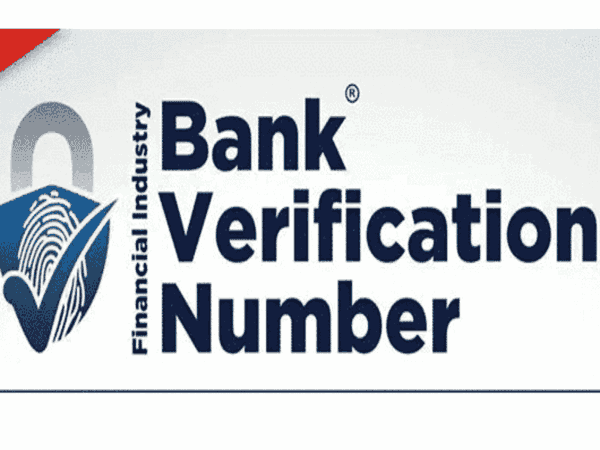In today's digital age, the importance of protecting personal information cannot be overstated, especially when it comes to sensitive financial data like your Bank Verification Number (BVN). This unique identifier is crucial in the Nigerian banking system, designed to verify your identity and prevent fraud. However, many people unknowingly put themselves at risk by sharing their BVN online. This blog post will explore why you should never share your BVN, the dangers associated with its misuse, and how you can safeguard your information.
What is a BVN?
A Bank Verification Number (BVN) is an 11-digit number that serves as a unique identifier for bank customers in Nigeria. It was introduced by the Central Bank of Nigeria (CBN) to enhance the security of banking transactions and curb fraudulent activities. Your BVN is linked to your bank account, allowing financial institutions to verify your identity.
Information Contained in Your BVN
Your BVN contains crucial personal information that makes it a valuable target for hackers:
- Personal Identification: Your name, date of birth, and other identifying details.
- Biometric Data: Fingerprints and facial recognition data that are used to verify your identity during transactions.
- Account Information: It is linked to your bank accounts, making it easy for fraudsters to access your funds.
Given the sensitivity of this information, sharing your BVN can have serious consequences.
The Dangers of Sharing Your BVN
1. Identity Theft
One of the most significant risks of sharing your BVN is identity theft. Hackers can use your BVN to gain access to your financial accounts and personal information.
Example: If a fraudster obtains your BVN, they can impersonate you and access your bank accounts, making unauthorized transactions or draining your savings.
2. Financial Fraud
Your BVN can be exploited for various types of financial fraud, including:
- Phishing Scams: Scammers may pose as legitimate financial institutions and ask you to provide your BVN. Once they have this information, they can use it to commit fraud.
- Loan Applications: Hackers can use your BVN to apply for loans in your name, leading to severe financial implications for you.
Step-by-Step Solution:
- Always verify the authenticity of any communication requesting your BVN.
- Use secure channels for transactions and avoid sharing your BVN through email or unsecured messaging apps.
3. Loss of Privacy
Sharing your BVN can lead to a loss of privacy, as it opens the door for scammers to gather more information about you.
Example: If your BVN is leaked, scammers can easily compile a profile of your financial habits, making it easier for them to target you with personalized scams.
4. Legal Implications
In some cases, sharing your BVN may have legal repercussions. If a fraudster uses your BVN to commit crimes, you may find yourself entangled in legal issues that can be challenging to resolve.
Step-by-Step Solution:
- Report any suspicious activity related to your BVN immediately to your bank and relevant authorities.
- Keep records of all communications regarding your BVN to protect yourself legally.
How Hackers Exploit BVN
Hackers employ various methods to exploit BVN and commit fraud:
1. Social Engineering
Hackers often use social engineering tactics to trick individuals into sharing their BVN. This can involve phishing emails, fake websites, or phone calls from someone posing as a bank representative.
Example: You might receive a call from someone claiming to be from your bank, asking you to verify your BVN due to "suspicious activity." This is a common tactic used by scammers.
2. Data Breaches
Data breaches at financial institutions or third-party companies can expose customer information, including BVNs. Once hackers gain access to this data, they can use it to target victims.
Step-by-Step Solution:
- Regularly monitor your bank statements for unauthorized transactions.
- Enable account alerts to receive notifications of unusual activities.
3. Fake Apps and Websites
Fraudulent apps and websites can deceive users into providing their BVN. These platforms often mimic legitimate financial institutions, making it difficult for users to recognize the scam.
Example: A fake banking app may prompt you to enter your BVN for verification purposes. If you fall for this trick, the hacker gains access to your sensitive information.
Protecting Your BVN
To keep your BVN and other sensitive information safe, consider the following strategies:
1. Be Cautious
Always be cautious about sharing personal information online. Avoid sharing your BVN on social media or with unverified contacts.
2. Use Strong Passwords
Ensure that your online banking accounts are secured with strong, unique passwords. This adds an extra layer of protection against unauthorized access.
3. Enable Two-Factor Authentication
Whenever possible, enable two-factor authentication (2FA) on your banking accounts. This provides an additional security layer, requiring a second form of verification beyond just your password.
4. Educate Yourself
Stay informed about common scams and tactics used by fraudsters. Understanding how they operate can help you recognize potential threats.
Conclusion
In conclusion, your BVN is a vital piece of information that should be guarded fiercely. Sharing your BVN can expose you to significant risks, including identity theft, financial fraud, loss of privacy, and potential legal issues. By understanding the dangers associated with sharing your BVN and taking proactive steps to protect your information, you can safeguard your financial well-being.

.jpg)







